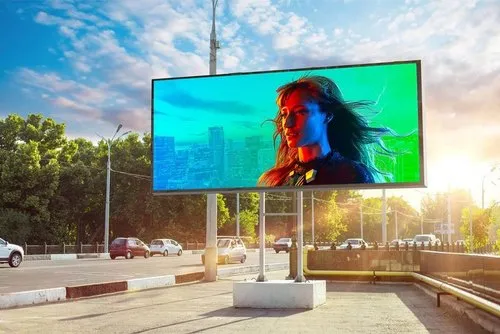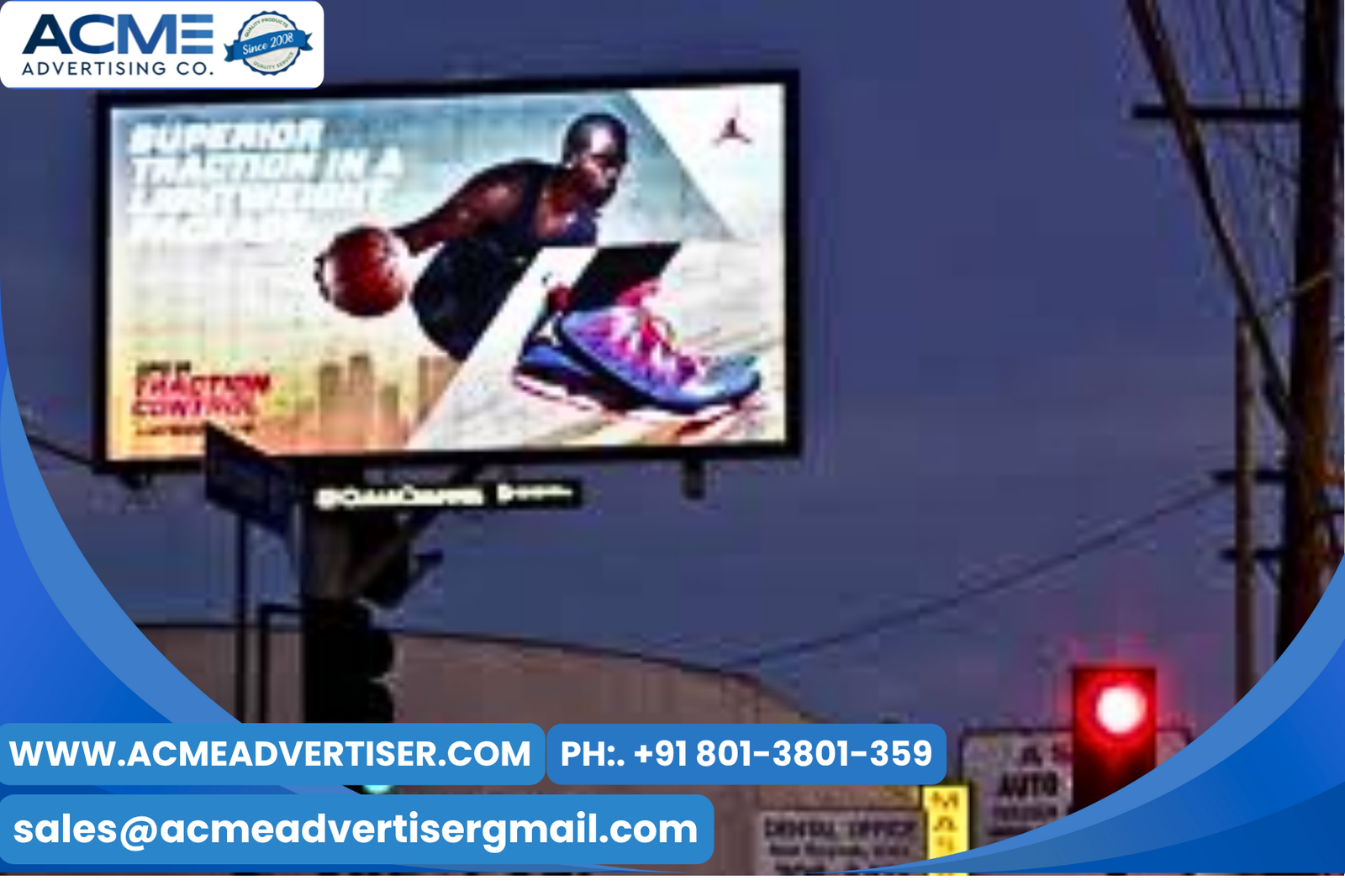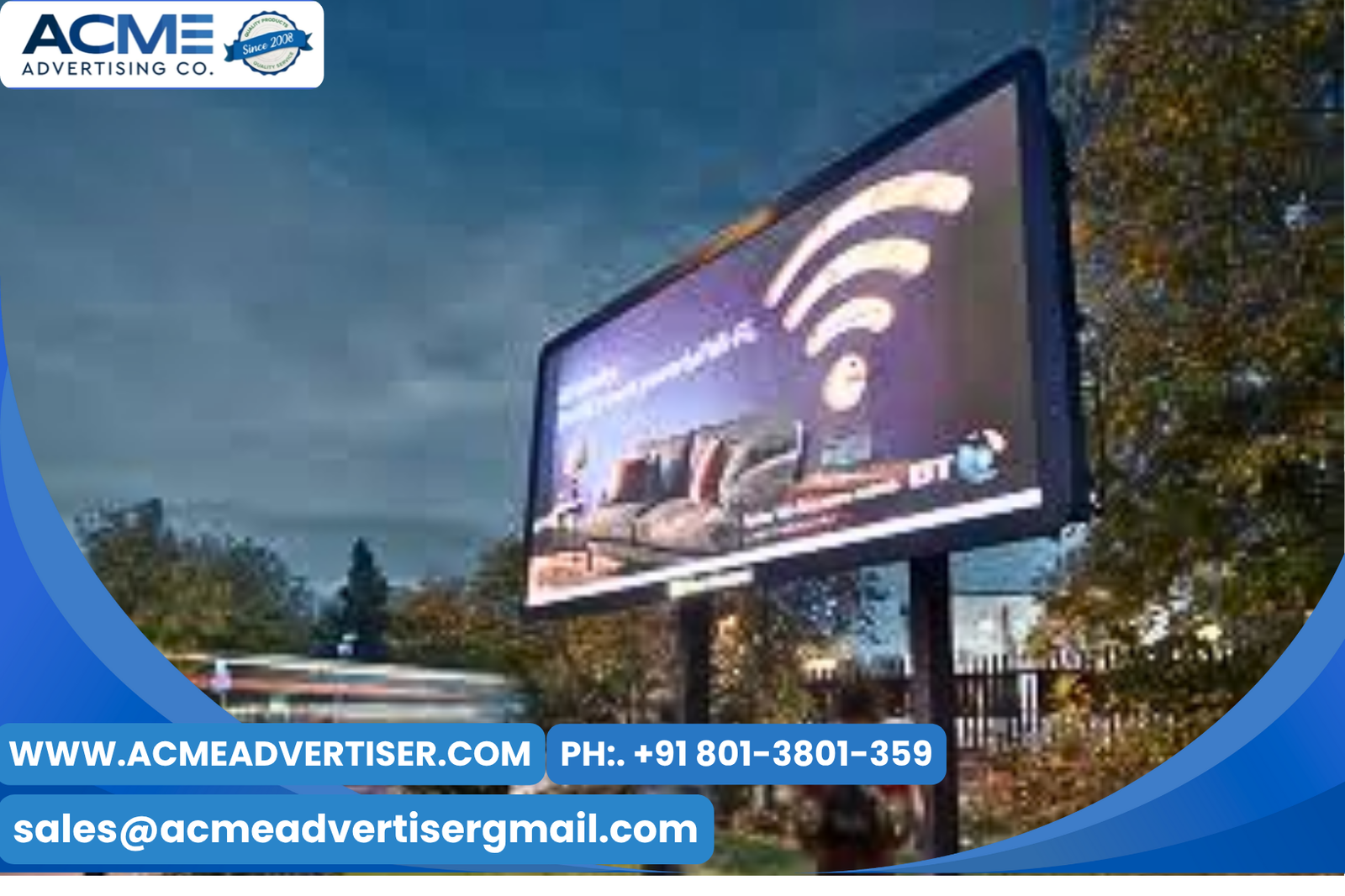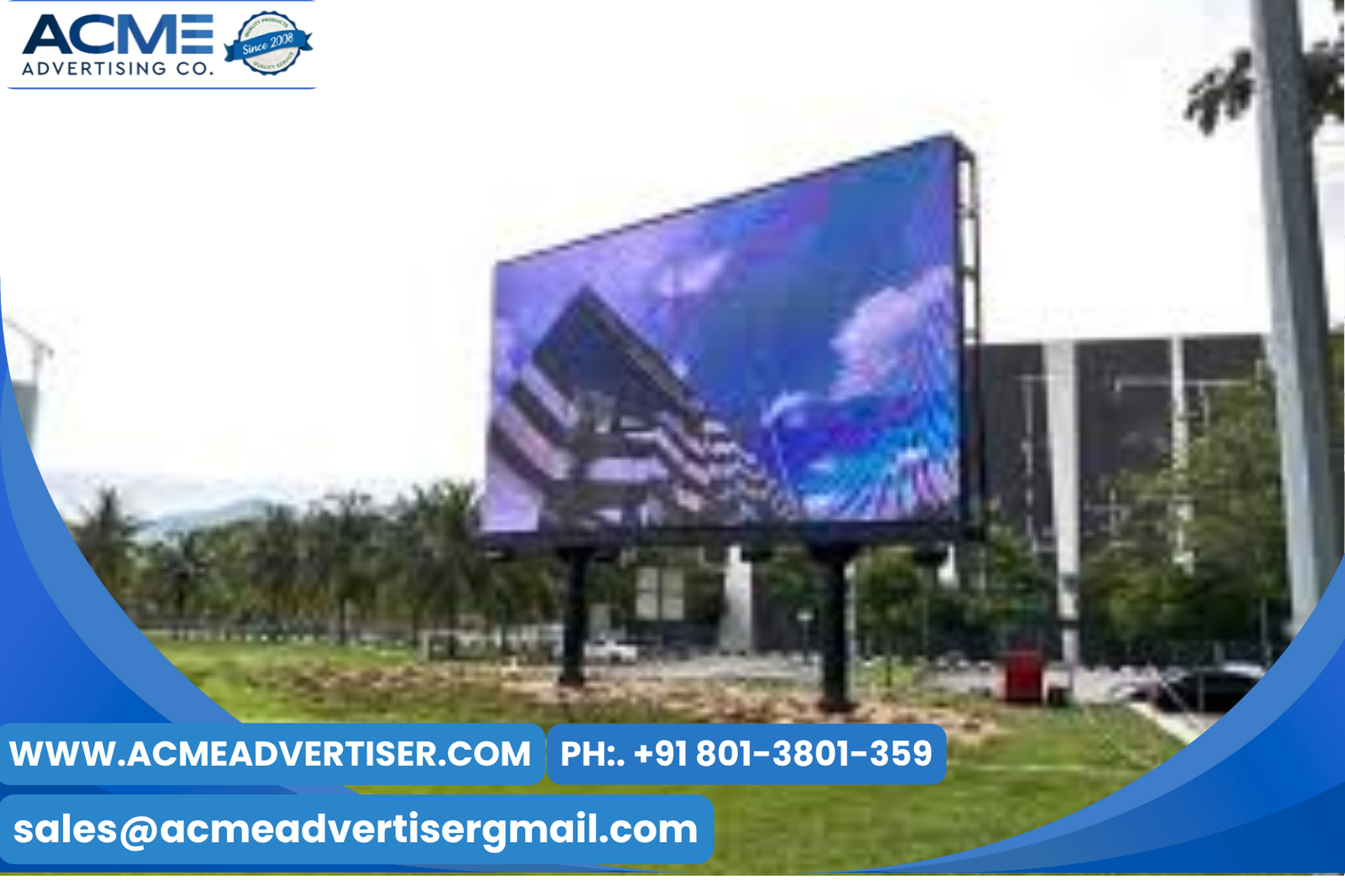Digital Billboards – ACME Advertising Co.
Digital billboards are high-tech, electronically controlled displays that use LED or LCD screens.
Digital billboards are high-tech, electronically controlled outdoor advertising displays that use LED, LCD, or projection technology to showcase dynamic content. Unlike traditional static billboards, digital billboards can display multiple advertisements in rotation, allowing for real-time updates and greater engagement.
Key Insights & Benefits:
1.Dynamic Content & Flexibility
Advertisers can update messages in real-time, schedule different ads for different times of the day, and run multiple campaigns on a single screen
2.Higher Engagement & Visibility
Bright, high-resolution screens grab attention more effectively than traditional billboards. Motion graphics and animations further enhance visibility.
3.Data-Driven Advertising
Digital billboards can integrate with real-time data sources such as weather conditions, traffic patterns, and audience demographics for personalized targeting.


4.Cost-Effective in the Long Run
While the initial investment is high, digital billboards eliminate printing costs and allow multiple advertisers to share space, maximizing revenue potential.
5.Eco-Friendly
Unlike traditional billboards that require frequent replacements, digital billboards reduce paper and printing waste, making them more sustainable
Types of Digital Billboards
1.Roadside Smart Billboard
Common on highways and city streets, they target commuters and pedestrians.
2.Indoor Digital Billboards
Found in malls, airports, and stadiums, providing hyper-targeted advertising.
3.Mobile Digital Billboards
LED screens mounted on trucks or buses, offering flexible and location-based marketing.
4.Interactive Digital Billboards
Equipped with AI, QR codes, or touchscreens to engage viewers and collect data.
5. 3D & Holographic Billboards
Cutting-edge displays that create immersive, eye-catching advertisements.


Challenges: For Digital Billboard
1.High Initial Cost
Digital billboards require significant investment in LED technology, software, and maintenance
2.Regulatory Restrictions
Many cities impose regulations on Smart Billboard to prevent distractions for drivers and maintain aesthetic standards
3.Technical Issues & Maintenance
Malfunctions, screen failures, or cyber vulnerabilities can disrupt campaigns.
4.Ad Clutter & Viewer Fatigue
Overcrowding Smart Billboard with excessive rotations can reduce the impact of individual ads
The Future of Outdoor Advertising
As technology advances, Smart Billboard are becoming more intelligent. AI-powered billboards can now analyze traffic patterns, demographics, and consumer behavior to deliver hyper-targeted advertisements. Additionally, the integration of AI technology will enhance real-time content streaming, making digital billboards even more interactive and engaging.
For businesses looking to amplify their marketing efforts, investing in digital billboards is no longer an option but a necessity. Their ability to adapt, engage, and captivate audiences in a dynamic world makes them the future of outdoor advertising.

FAQs: Smart & Digital Billboard Advertising
Expand your network with us, let’s connect on LinkedIn









